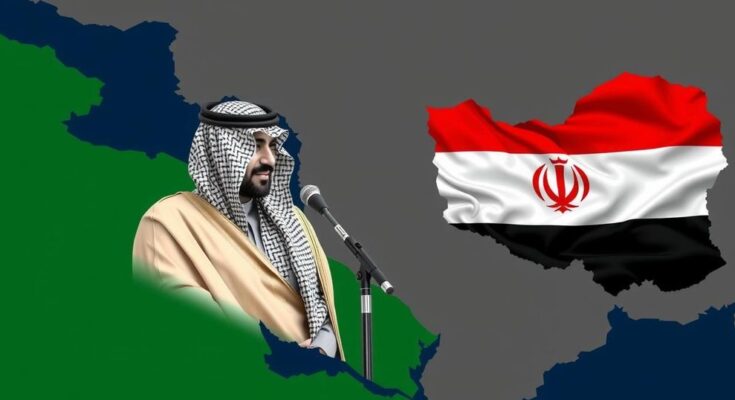Saudi Arabia, the UAE, and Egypt have issued restrained responses to Israel’s military actions against Iran, signaling a possible shift in their diplomacy. Rather than outright condemnation, their statements highlight the importance of regional stability and cooperation in countering Iranian influence. This marks a subtle realignment, where these nations appear to be increasingly tolerant of Israel’s role in maintaining security within the region.
In the complex landscape of Middle Eastern alliances, Saudi Arabia, the United Arab Emirates (UAE), and Egypt have displayed a notable shift in their responses to Israel’s recent military actions targeting an Iranian base. Unlike the historical precedent of vociferous denunciations directed at Israel, their responses have adopted a significantly restrained tone. Each of these nations, while referencing terms such as ‘sovereignty’ and ‘de-escalation’, strategically abstains from outright condemnation of Israel. Instead, they implicitly acknowledge the broader threats to regional stability which appear to influence their diplomatic approach toward Israel’s actions. The UAE’s reaction encapsulates this measured stance. The nation issued a statement denouncing the military attack while simultaneously calling for ‘utmost self-restraint’ and emphasizing the necessity of dialogue and adherence to international law. This reflects a diplomatic inclination that aligns with previous efforts toward economic and security cooperation with Israel under the Abraham Accords. While ostensibly condemning Israel’s military actions, the UAE’s focus indicates an acknowledgment of the country’s security strategies. Saudi Arabia has similarly exhibited a softened tone, categorizing the attack as ‘a violation of sovereignty’ but highlighting the importance of security and stability in the region. This marks a significant departure from previous, sharper rhetoric. It demonstrates a calculated diplomacy that neither isolates Israel nor fully aligns with Iran, suggesting a subtle undercurrent of tolerance toward Israel’s security measures in the face of Iranian threats. Egypt extends this diplomatic nuance further, cautioning against a ‘serious confrontation that threatens regional and international security’. Its appeal for a ‘swift ceasefire’ reflects a broader commitment to maintaining stability, indicative of a country molded by the complexities of the Israel-Palestine dynamic while simultaneously navigating its own national security concerns. The collective responses of these nations hint at a strategic realignment within the Middle Eastern geopolitical landscape. By emphasizing shared interests such as curbing Iranian influence and promoting regional stability over the Palestinian cause, Saudi Arabia, the UAE, and Egypt are subtly signaling a willingness to recognize Israel’s position as a potential partner in achieving regional security. In contrast to past reactions, these measured responses could suggest a gradual erosion of former divides in favor of collaborative interests. The apparent shift towards a supportive, yet reserved stance regarding Israel denotes an evolving narrative where Israel is no longer seen solely as a rival, but as a crucial counterweight against Tehran’s regional ambitions.
The dynamics of Middle Eastern geopolitics have long been defined by complicated and often adversarial relationships. Saudi Arabia, the UAE, and Egypt have traditionally expressed staunch opposition to Israeli military actions, particularly concerning Iran. However, recent developments suggest a recalibration of these stances, wherein these Arab nations are increasingly recognizing the intertwining of their security interests with those of Israel, chiefly in countering the influence of Iran. The ongoing tensions between Israel and Iran have compelled these nations to reassess their diplomatic approaches to foster stability and security in the region.
The nuanced responses from Saudi Arabia, the UAE, and Egypt to Israel’s military actions against Iran signify a potential shift in Middle Eastern alliances. Their careful language, emphasizing restraint and regional stability, reflects a growing recognition of Israel’s role as an important ally in counterbalancing Iranian influence. This evolving diplomatic posture may represent a significant progression in the region’s geopolitical landscape, suggesting possibilities for future cooperation and stability among historically adversarial parties.
Original Source: www.jpost.com




